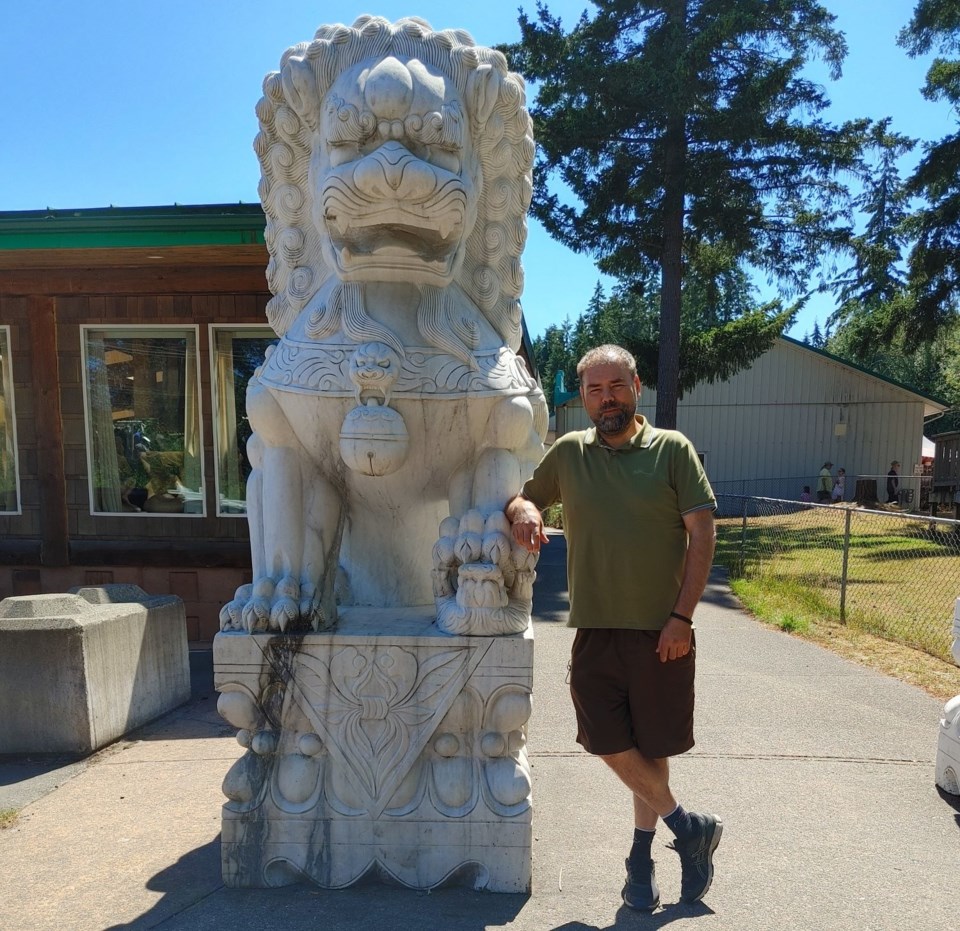Vernon Winder, longtime Prince George resident, was a 10 kilometre-a-day runner, super-healthy, super-energetic, a person who just kept going until he couldn’t.
“I was 40 when my body started giving up,” 49-year-old Winder said.
“Everybody says 'it seems young' but if you look at Michael J. Fox – he was young, too.”
Parkinson’s hit Winder like a ton of bricks. One day he was running his 10 km and working, the next day he couldn’t move.
He had a sudden persistent cough and felt an obstruction in his lungs. When he went to the doctor they thought it was a virus but it wasn’t and then they thought it was cancer and it wasn’t that either.
Winder went to a respiratory specialist.
“And we went through everything,” Winder said. “It was confusing because I had some symptoms for this and that and I used to run through the woods so I thought Lyme’s Disease but it wasn’t that either. All the tests came back negative.”
A year later he went back to the specialist.
“This time I was barely walking, shuffling my feet, hunched over and shaking like crazy,” Winder recalled. “She said ‘we need to get you in for a brain scan’ and that’s the only way they could find it.”
Winder was diagnosed with Parkinson’s disease just two years ago.
Although studies show genetics play a factor in only five to 10 per cent of people who are diagnosed, Winder’s grandmother and grandfather had it and so does his mother. Winder said his mother’s diagnosis came early and medication manages her symptoms very well.
To raise awareness and funds the Parkinson SuperWalk goes Saturday, Sept. 7 at 12:30 p.m. at the pavilion at Lheidli T’enneh Memorial Park.
The SuperWalk is the largest and most important awareness and fundraising event for Parkinson Society British Columbia (PSBC). Funds raised go to PSBC programs, support services, and contributions to research. The Telus Ambassadors will be on hand with their hot dog cart and 100 per cent of the proceeds will go to Parkinson’s. For more information visit www.parkinson.bc.ca/.
Parkinson’s is the second most common degenerative neurological disorder after Alzheimer’s disease, the Parkinson Society of BC stated in its information brochure. Parkinson’s is caused by a loss of dopamine in the area of the brain called the substantia nigra. The cells that produce dopamine begin to die, reducing the amount of dopamine.
The symptoms of Parkinson’s appear when more than half of the dopamine cells are lost. The progression of the disease and accompanying symptoms vary with each individual.
Dopamine is a chemical in the brain that controls the way messages travel from one nerve cell to another. It affects the parts of the brain controlling voluntary movement such as walking, writing, throwing a ball, or buttoning a shirt. It is also essential for involuntary movements including control of blood pressure and bowel function. Loss of dopamine can also affect mood and thinking.
“It was my right side that was affected and I could hardly see anymore," Winder said. "My arm was just hanging there and my legs would give out."
Everything changed with his diagnosis.
“Within half an hour of taking the medication I could see again, I stopped shaking like crazy, I could walk again,” Winder said.
“After seven years of not knowing what was going on, the ups and downs, the symptoms, then medication that worked after diagnosis, that was the big part. Now my mental state is so much better – ‘oh, I dropped something else again, oh, I can’t bend over to tie my shoes today,’ – every day is a new day with new challenges and now I just take it in stride because I know it’s Parkinson’s.”
One of the hardest things to give up for Winder was his job.
“I loved working,” Winder said. He was a finisher.
“Nobody wants a shaky painter,” Winder laughed. “One of the hardest things was giving up what I used to do. I can’t work, I can’t run.”
Winder is a single dad and focuses a lot of his energy on his son.
“We’re very close and my son worries about me,” Winder said. “This disease isn’t just about the person who has Parkinson’s but all the people who love them, too.”
Parkinson Support Group meetings are the third Saturday of each month. The next meeting is Saturday, Sept. 21 at 1 p.m. at the Spruce Capital Seniors Centre, 3701 Rainbow Dr. Meetings are informal and are for sharing information about slowing down the progression of the disease. There are guest speakers, special events and biweekly exercise sessions and positive social interaction. Use the lower parking lot beside ball diamond to access the seniors centre.


.png;w=120;h=80;mode=crop)
